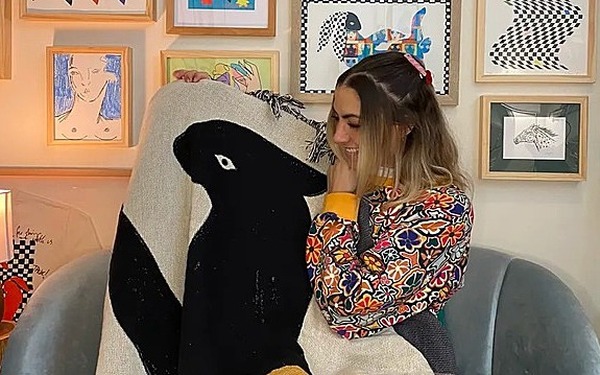Masayoshi Son’s defensive strategy when ‘it rains’
Masayoshi Son took an “unusually lighthearted” attitude when he revealed last Thursday that the Vision Fund had lost $27 billion due to failed investments last year.
He has refrained from exaggerated, liberal slides that depict SoftBank as the goose that lays golden eggs in the AI era or “a unicorn with many wings flying through the Coronavirus Valley”. He also no longer compares himself to God!
Instead, he began his presentation with a picture drawn in white against a dark blue background: Mamori. In Japanese, mamori means “protection”. But, be it “defensive” or “protective,” mamori represents a significant strategic shift for the billionaire founder, who has always embraced high-risk actions.
“We’ll cover our umbrellas when it rains. This is the time to strengthen our defenses,” Son said.
Son went through the same stages as before. Two years ago, he promised to cut huge budgets to invest in companies after a series of record losses on false bets when the market was thrown into chaos by the effects of the Covid epidemic. -19.
However, the recovery quickly returned. He used an emergency sale of a $41 billion fortune to fund the biggest stock buyback in Japanese history. Thanks to that, he reduced Softbank’s net debt by about 14 billion USD.
Investors and analysts say the difference between the past and now is that SoftBank’s fate can no longer be easily reversed and a swift recovery is far from easy. That raises a fundamental question about Son’s path forward.
“It seems that Masa has no ideas at all,” said an investor in Softbank.
The period of pandemic monetary stimulus that helped blow up unprofitable but high-growth companies around the world is over.
Expectations that the US would raise interest rates to control inflation also provided momentum for a sell-off. Meanwhile, in China, the suppression of the technology world has not shown any signs of abating. Softbank’s shares in Alibaba represent 22% of the company’s net worth. That said, Son is particularly vulnerable to attacks by the Chinese authorities.
Risks increased further in mid-March when Alibaba shares fell to $73 – their lowest level since 2016. On that day, a source said Softbank was “extremely close” to a margin order. made an urgent call with a loan whose collateral was a stake in Alibaba.
The Chinese authorities were quick to step in to stabilize the market but it was still a scary moment for investors.
“We do not comment on personal financial details. The margin loan balance is $6 billion – not a cause for concern considering the company’s ratio of total assets and liquidity,” the side said. Softbank stated.
The publicly listed companies in which the Vision Fund invests, on average, have seen their share prices drop 62% since their IPOs. Of the 24 IPOs in 2021, only three of them will see stocks rise, according to Kirk Boodry, an analyst at Redex Research.
Son appears to have run out of options to restore investor confidence as buying into the stock becomes less effective in preventing a further decline in Softbank stock.
The $7.8 billion share buyback program announced last fall not only failed to help the stock’s 40 percent drop over the past year, but also introduced “centralized systemic risk and destroy value”.
Softbank could also sell off shares in Alibaba or its Japanese telecom subsidiary, Softbank Corp, but that means Son can no longer borrow money by mortgaging those shares and if so, he can’t have the money to finance the loan. new investments.
The source said that the telecommunications business is also highly profitable and generates stable cash flow for the company. Selling Alibaba shares at a third less than the October 2020 peak will also be a pain for Son.
“It is difficult to say how long this difficult period will last. There are many factors that are difficult to predict,” said a person involved with the Vision Fund.
Son had hoped to sell Arm, the British chip design company Softbank bought for $31 billion in 2016.
Softbank plans to take the company IPO after the sale to Nvidia collapsed.
While Softbank saw its biggest loss ever, Arm reported record annual revenue of $2.7 billion, up 35% year-over-year. “When I look at what we’ve achieved last year, I really see the logic in the strategies we put in place three or four years ago,” said Arm CEO Rene Haas.
However, Son also had to backtrack on his expectations with Arm as his $66 billion valuation is currently in doubt due to rising interest rates and changing investor attitudes.
“All we can say is we are preparing,” Haas said of the question regarding the IPO.
Softbank shares were up 12% on the day of Son’s presentation, but Bootry said that optimism could soon pass.
“Some people seem to think that because of record losses, things are somehow resetting. But we don’t think so. Clearly there is reason to be concerned.”
Source: Financial Times
Following the Economic Lifestyle
at Blogtuan.info – Source: cafebiz.vn – Read the original article here



